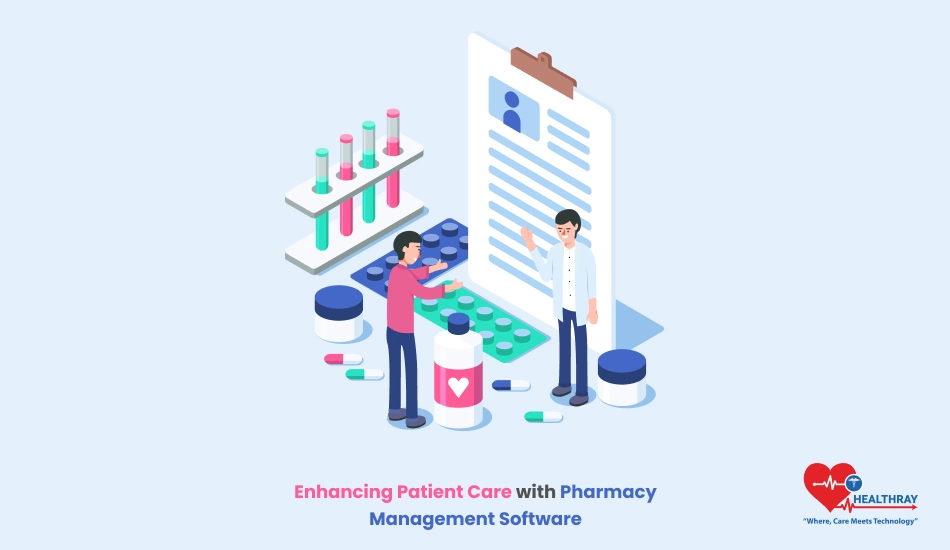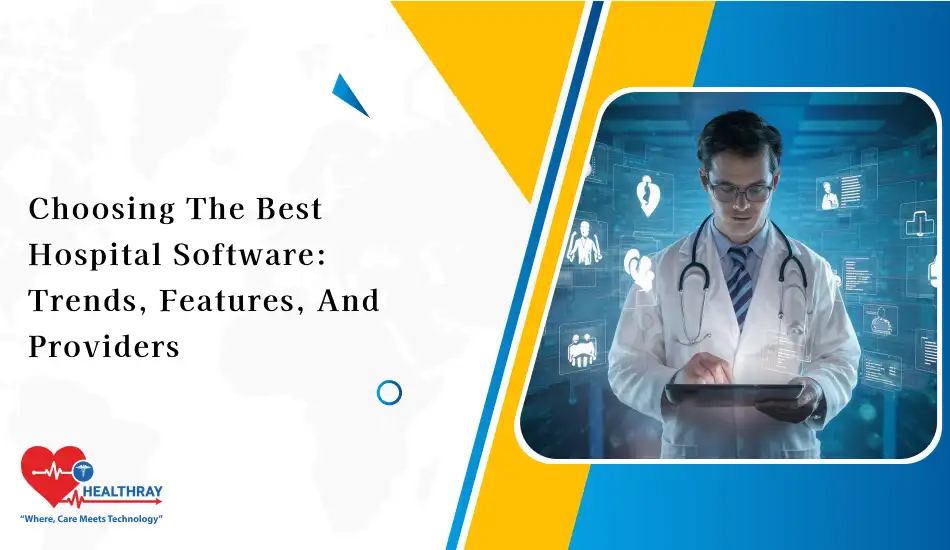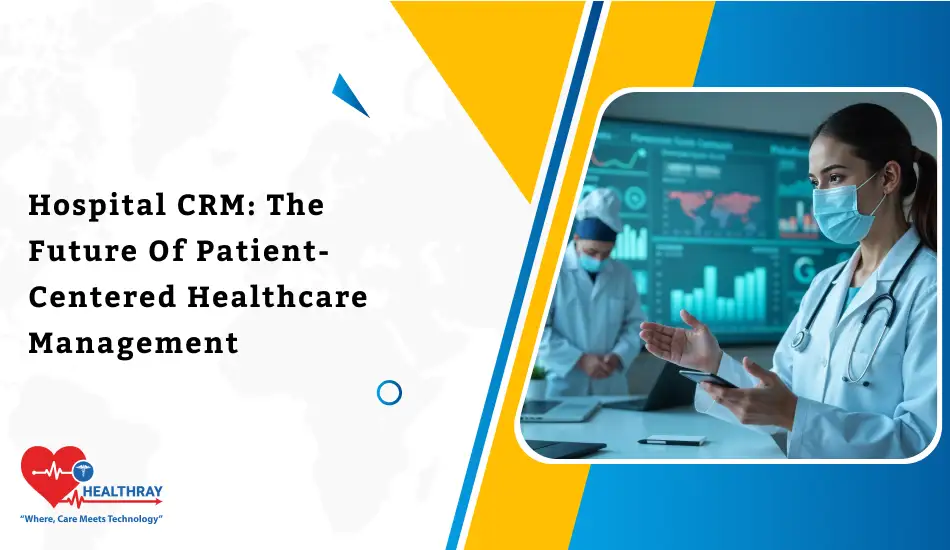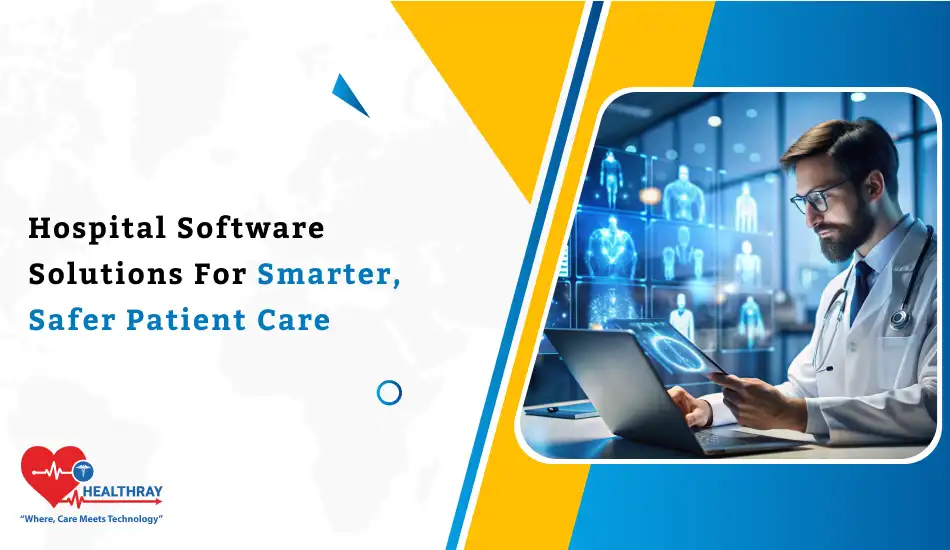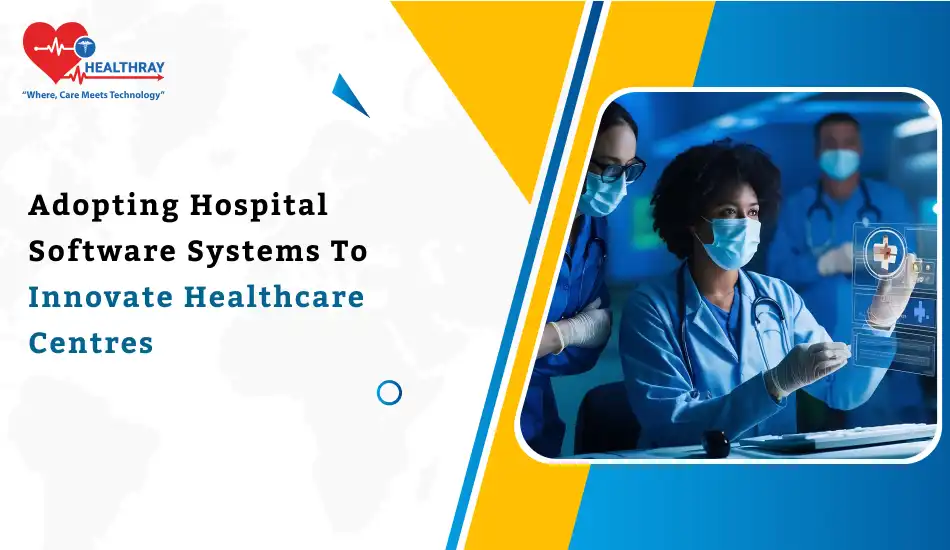There was always more to a pharmacy than merely picking up your medication. Pharmacists were viewed by patients as consultants who might help them understand the dosage and directions of a prescription drug or help them select an over-the-counter medication. Although they were always willing to help, they hardly ever knew enough about a patient’s allergies, medical history, or current treatment plans to provide more thorough guidance. But this is beginning to change. Pharmacies are not an exception to the changes taking place in the healthcare sector.
Patients can safely share their medical information and have access to it. Hospitals are urged, if not compelled, to communicate with all other stakeholders and become interoperable. Through the pharmacy management system, important information is gathered and turned into insights that increase the confidence of judgement that could mean the difference between life and death.
Key Advantages of a Pharmacy Management System
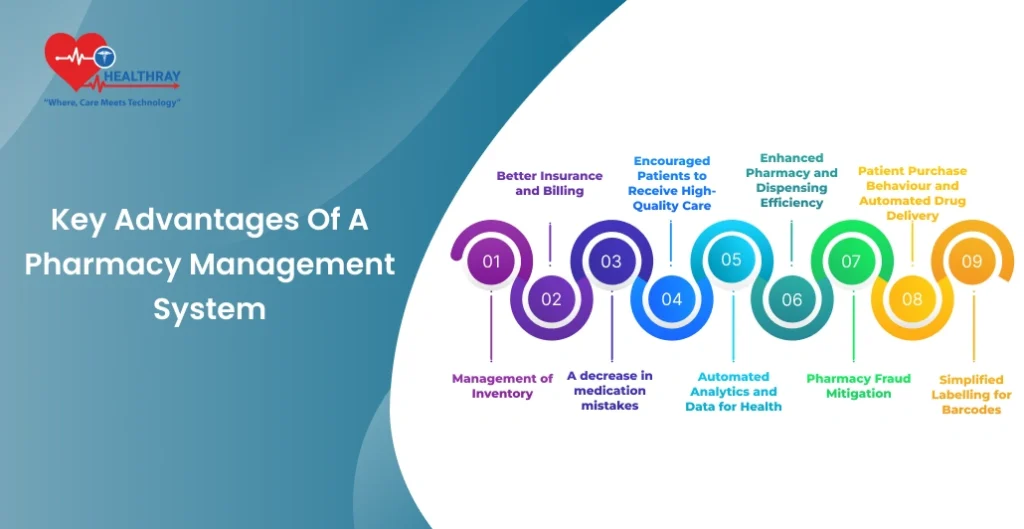
Patients can safely share their medical information and have access to it. Hospitals are urged, if not compelled, to communicate with all other stakeholders and become interoperable. Important information is gathered and turned into insights that increase the confidence of judgements that could mean the difference between life and death. A pharmacy management software’s primary benefits include:
Management of Inventory
Drug overstocking, understocking, and dead stocking can be decreased with efficient stock management. It provides real-time updates on the stock level in your pharmacy for both you and your staff. A pharmacy management system guarantees that medications are given in the proper dosage and quantity and verifies that the prescriptions are accurate.
Medication transactions are tracked by PMS, which also notes which medications are seasonal, infrequently ordered, popular at all times, and so forth. This feature keeps you from running out of necessary prescription drugs, particularly during times when demand is high.
A pharmacy management system, or PMS, is a healthcare system that, while adhering to regulations, plans and automates many aspects of the pharmacy-patient lifecycle, including prescription review, inventory control, billing, dispensing, insurance, and more. Furthermore, PMS is a patient-centered approach that guarantees patients receive optimal multidisciplinary care, minimises wait times, and corrects pharmaceutical errors. Additionally, it lowers operating expenses and offers actionable insights into data points, providing your pharmacy a competitive advantage over rivals.
Better Insurance and Billing
Automating and streamlining the normally complex insurance and billing procedures is another goal of a hospital pharmacy management system. This time-saving tool guarantees that patients are billed for the correct amount and that claims are processed promptly and appropriately. This capability has advanced recently, potentially enabling real-time insurance claim processing through interfaces with insurance companies.
A decrease in medication mistakes
The pharmaceutical industry is far too prone to medication mishaps. 35% of the more than 100,000 instances that occur annually in the US alone are caused by incorrect prescriptions or dosages. You may deliver the appropriate medications in the appropriate dosage and quantity by automating the medication process.
Encouraged Patients to Receive High-Quality Care
A pharmacy software program’s primary goal is to give patients high-quality care and better health outcomes. By offering e-counseling, live chat, and feedback to patients who are unable to visit in person, the patient-first pharmacy management system provides individualised patient experiences. For patients with long-term conditions like diabetes, PMS may also include educational resources and adherence aids. These resources often highlight the importance of micronutrients such as methylated B12 in managing heart support and neuropathy symptoms.
Automated Analytics and Data for Health
The pharmacy management system provides you with visibility into numerous trends and statistics in addition to pertinent health data. Useful information that can assist you in planning your next clinical step is highlighted in analytical pharmacy reports.
Enhanced Pharmacy and Dispensing Efficiency
Every pharmacy’s finest option for expediting medication dispensing and boosting efficiency is pharmacy management software.
Pharmacy Fraud Mitigation
Pharmacies must take action or risk being complicit in the surge in fraudulent healthcare operations. Every day, there is a tonne of news concerning health insurance fraud, prescription drug manipulation, and other issues. The ability to receive electronic prescriptions straight from doctors and communicate with insurance companies for a smooth prescription-billing-dispensing process is one of the benefits of pharmacy management systems.
Patient Purchase Behaviour and Automated Drug Delivery
Keep in mind the adage, “A satisfied customer is a loyal customer.” In order to provide patients with a personalised experience, a pharmacy software sorts their orders and sends them emails and alerts about stock-ups and deals. Being the public’s favourite and ensuring brand loyalty can be achieved in this way.
Simplified Labelling for Barcodes
Labelling and selling pharmaceuticals in accordance with their expiration dates is a breeze when you use the pharmacy management system’s barcode scanning feature. Additionally, it aids in identifying shrinkage when loss or theft is involved.
10. Examined the medical history of the patient
Micro-accessing every patient’s data through electronic portals may not be feasible at this time due to stringent regulatory rules like HIPAA. Nonetheless, pertinent patient history regarding prescriptions can be stored and reviewed by pharmacy management systems.
Trends Affecting Pharma’s Future
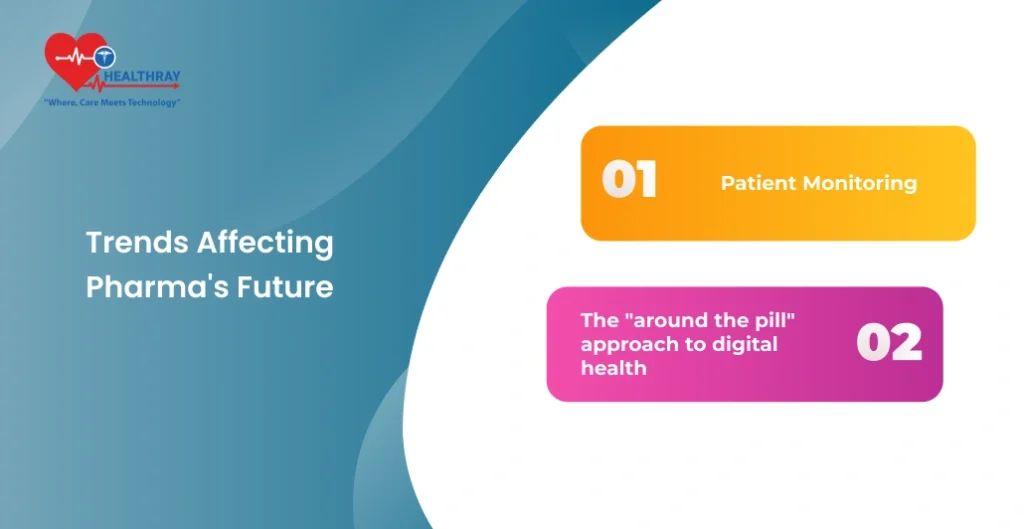
The pharma industry has taken a big swung into digital transformation. Every participant makes an investment in digital health subjects. However, there is a lot of fuss that is difficult to look through, just as with any popular problem. The cultural change we frequently discuss is still a ways off, even if the medical establishment is beginning to recognise the significance of digital health. Knowing what’s coming is always the first step in changing that.
We compiled the trends that are transforming the pharmaceutical sector in one post.
Read our linked ebook, Technologies Shaping the Future of Pharma, for a deeper examination of the subject.
Patient Monitoring
Include patients on the advisory boards of major pharmaceutical companies
Patients should be considered as equal partners in hospitals, pharmacies, and even pharmaceutical businesses as they use digital health to take control of their health and, consequently, their own destiny. Patients who have used the company’s products should be on the advisory board of drug manufacturers.
Knowing the precise needs of the market would make it simpler to create new items. Even decades after the first ideas were draughted, it would only be able to develop a healthcare system that is forward-thinking with their assistance. We refer to this as patient design.
The “around the pill” approach to digital health
Pharma firms will prioritise innovative strategies that rely on technology to appeal to payers and providers more than they will on conventional drug manufacture and marketing. More than just manufacturing and selling medications, “around the pill” refers to creating a medication and integrating digital health technologies with it.
These are frequently non-clinical solutions that are patient-support initiatives that can improve patient outcomes and help the health system as a whole. Patients benefit from these programs by getting more than just a tablet, and pharmaceutical companies can profit from the data and feedback they get as well as the potential loyalty of patients who value the extra attention. if executed properly.
In summary:
With its many benefits and necessary features that improve productivity, accuracy, and patient safety, pharmacy management software has completely changed how pharmacies run. These software programs are essential for optimising pharmacy workflows and guaranteeing the best possible patient care, from inventory management to prescription filling and regulatory compliance. Adopting Healthray software is a step towards the future of the healthcare sector as well as a wise business move. adopting pharmacy management software will become increasingly essential for staying competitive and ensuring the best outcomes for your patients.
